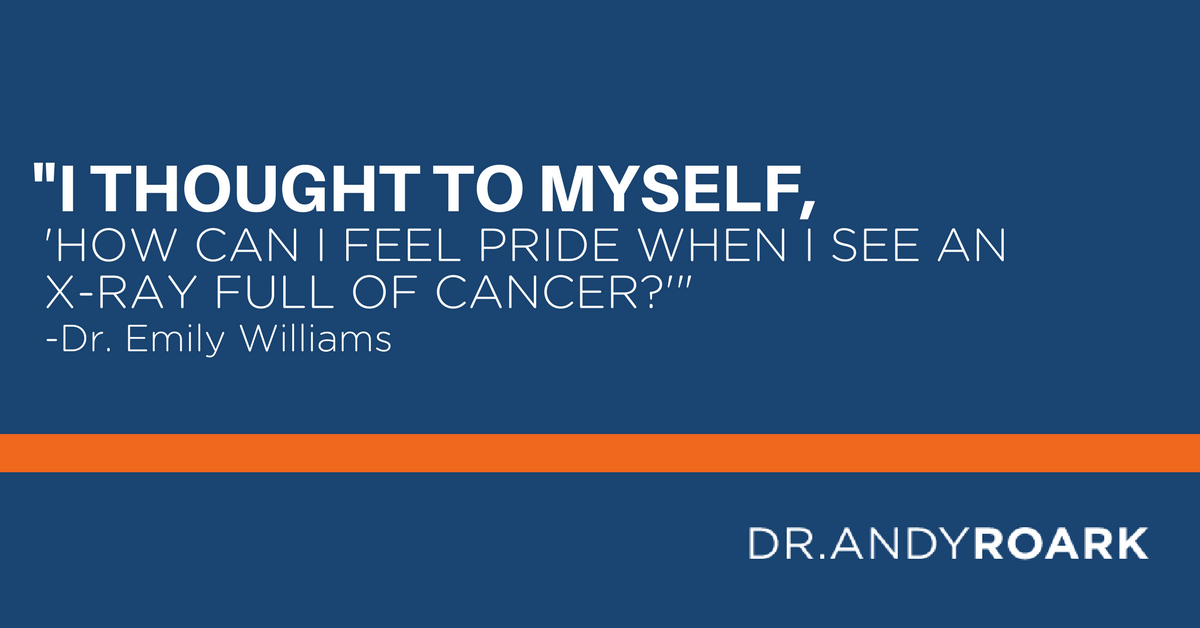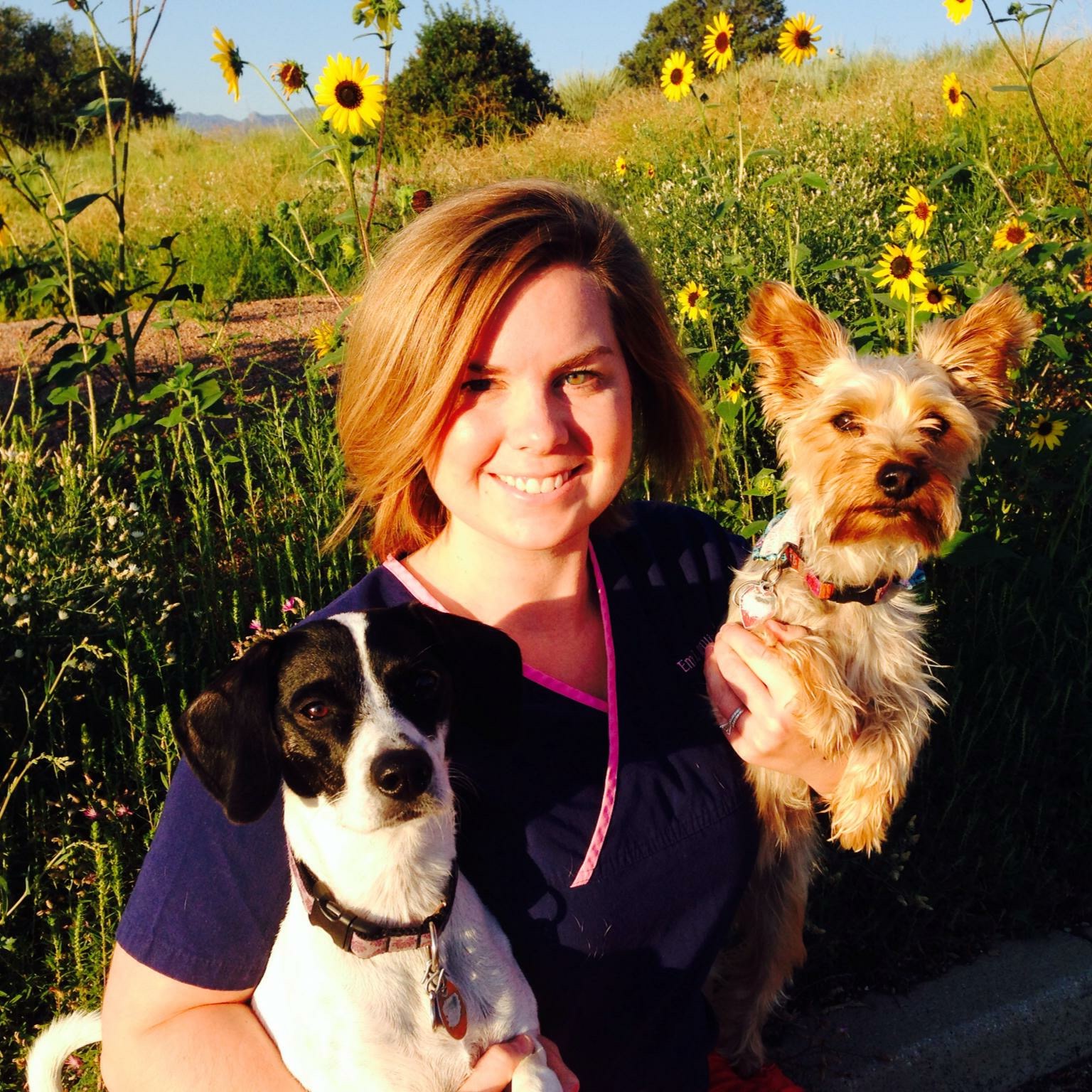

I had to tell an owner that his best friend was dying last week. He brought his 11 year old dog to see me for coughing after exercise. Prior to going into the room, I reviewed his history and noted a murmur was diagnosed over a year ago. I walked into that room with congestive heart failure on the top of my list. I was greeted by a happy Aussie and a bright eyed owner.
When I listened to the heart, I immediately knew this was not a cardiac issue. The murmur was no louder than it was when it first was diagnosed and lungs sounded clear. I knew this had to be a respiratory problem and to be honest I thought it was a URI. Something didn’t add up, so I suggested chest x-rays. The owner authorized the images and as I held down the pedal to take the x-ray, I said out loud, “Please don’t break my heart.” The image came up on the screen and the chest was full of metastatic cancer.
I remember feeling an instance of pride. Pride for trusting my instinct. And pride because for the first time in my four years being out of veterinary school, I felt “experienced.” Experienced enough to recognize the unlikeliness that this was a cardiac issue and most likely a respiratory condition. And further experience to be concerned that this was more than an upper respiratory infection.
But the short instance of pride was quickly replaced by shame. I thought to myself, how can I feel pride when I see an x-ray full of cancer? How did I almost talk myself into thinking this was a URI and almost let the owner not take the radiograph? Why do I deserve to feel “good” when this man is filled with so much sadness and grief?
This case shows my internal struggle with black and white thinking and perfectionism. This is a classic example of just how destructive these thought processes are to my sense of self and confidence. Instead of recognizing in the moment that I could in fact feel pride and sadness at the same time, I quickly went to the emotion that made the most sense. Cancer is “bad” so I must feel an emotion that is “bad”. Pride is not a “bad” emotion so shame seems more appropriate.
I am not suggesting that I should have paraded around the owner with a giant smile on my face saying, “See, this is exactly why I wanted to take an x-ray! Aren’t I just amazing for recognizing that your dog didn’t have a URI. Instead he is dying!” That insanely invalidating and insensitive approach would be the same as sitting alone in my shame.

Empathizing with the owner’s grief was extremely important and necessary at that time. I truly did feel sadness and my heart did break when I saw the tears in his eyes. At the same time, I recognized that for my own sense of self and sanity, I had to come back to the emotion of pride. So I came home that evening and I wrote. I went through the thought process to see why I pushed the pride far away. And as I outlined above it was because that feeling didn’t seem appropriate.
A similar situation to the case above and one that I think most veterinarians can relate to is when we have a puppy exam following a euthanasia. The dichotomy of these appointment types leads to even more conflicting thoughts. At one moment we are asked to humanely end life, while owners see their family member take their last breath. While the next moment we are laughing in a room, getting puppy kisses. And exactly how many of us stop in between those two appointments and take a breath and recognize our grief? We may not have the time right then and there to reflect but we MUST come back to feel that emotion or eventually the feelings we avoid will destroy us.
I attribute the high suicide rate in our field because most of us avoid feeling or more appropriately we choose what to feel and ignore other uncomfortable feelings. Avoiding the feelings doesn’t erase them. We owe it to ourselves to learn to live in the grey area; to experience two conflicting emotions at the same time and to be okay with the discomfort of the dichotomy.
So I look back on that day I diagnosed metastatic lung cancer in that sweet dog, and I think “Good job Emily for taking radiographs and finding the answer to why he was coughing. The diagnosis sucks! With that simple diagnostic though that YOU recommended, the family can enjoy the last few weeks of his life to the fullest.” Now I can comfortably say during that moment I felt both sadness AND pride. That is the power of AND: it does not minimize one emotion in order to validate another. Instead it allows both opposing emotions to be true.

About the Author
Dr. Emily Williams is a small animal veterinarian in Denver, Colorado. She enjoys writing, crafting and watching TV curled up on the couch. Her current aspiration is to master mindfulness so that she can fully be present and accepting in everything she does in and out of the veterinary field.